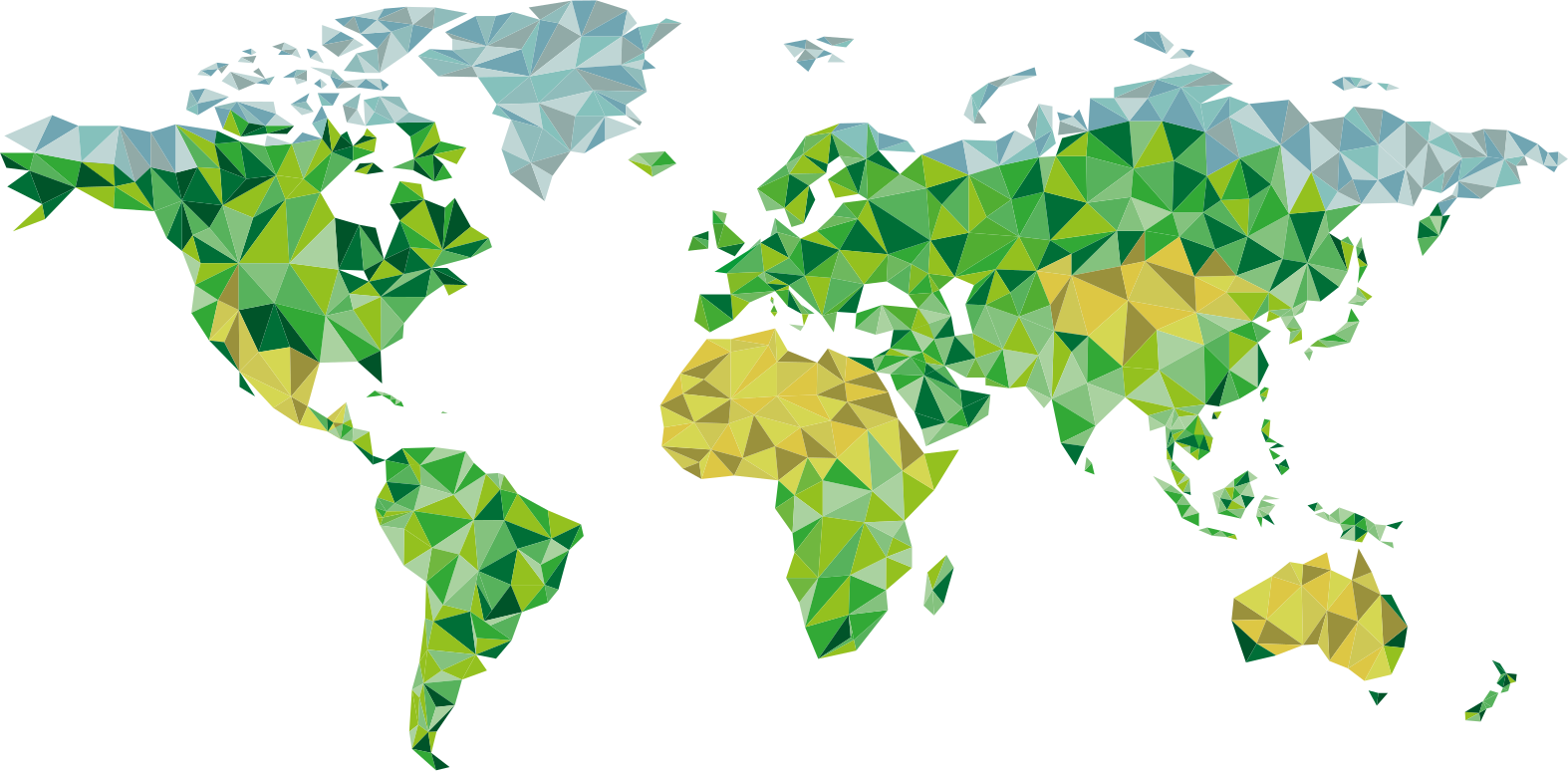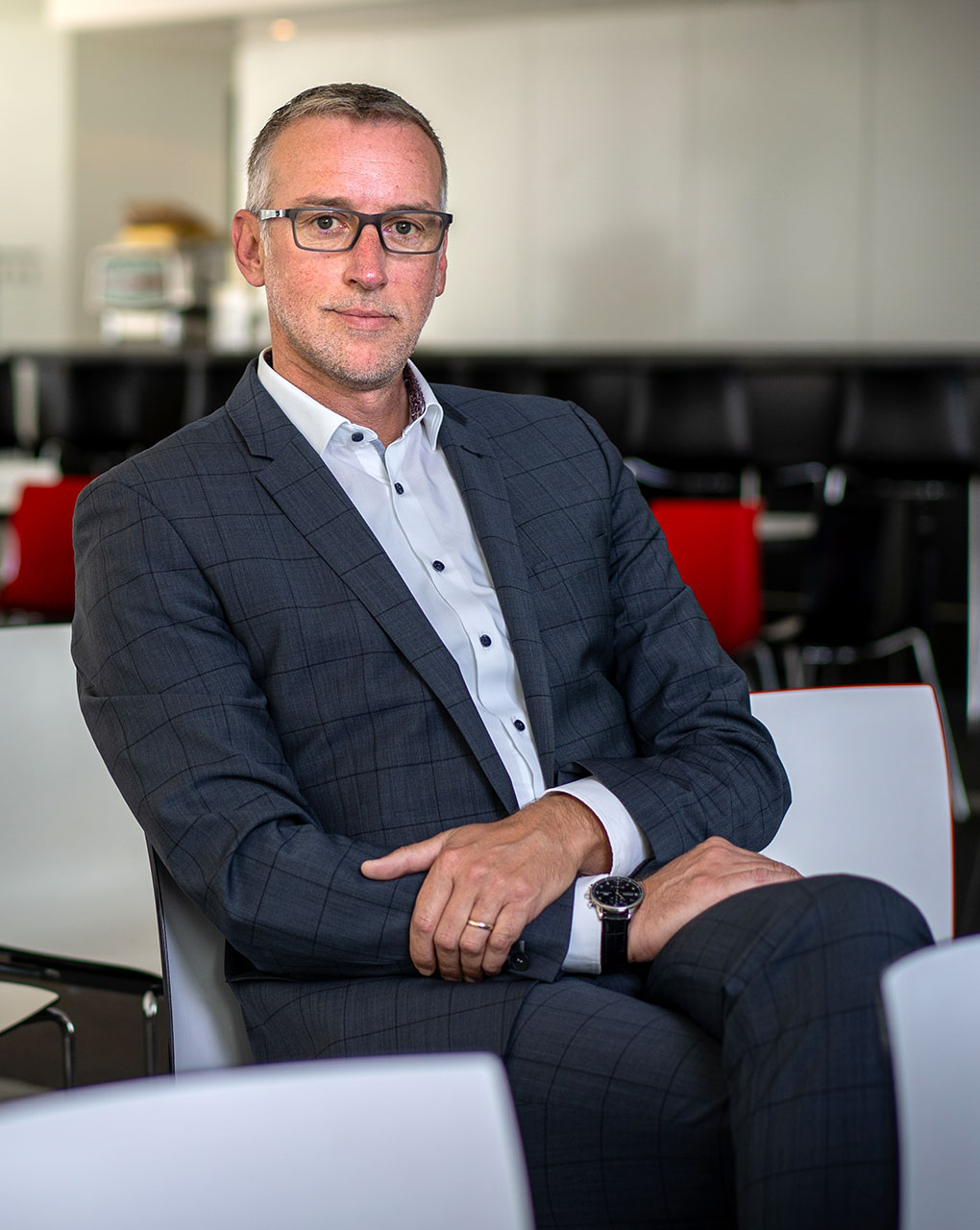Going local. Growing global. Interview with Michael Engel.

In our series Going local. Growing global. We showcase our regions and their leaders to honor their uniqueness and importance.
In this episode: Meet Michael Engel, EVP of Region Africa and Global Services.
Q: In addition to your role as EVP Global Services, you also lead the Region Africa. That's what today's interview is about. We want to put your region in front of the curtain, so my first question is: What are the special features of the Africa region?
A: There are certainly the economic conditions in the countries on the continent. It still needs a lot of development and is not comparable to regions like Europe or North America. The standard of development and the goals that these regions pursue are completely different.
Q: What are the region's strengths?
A: On the one hand, definitely the growth potential, but there is also another core strength. People are used to succeeding under difficult conditions and, in my view, have a more positive approach to dealing with problems than in other countries. Elementary problems are on the agenda, so problems in the professional context are not perceived as an extraordinary challenge. In their private and social environment, people are confronted daily with things that, for example, cannot even be properly imagined in Europe. An example, in South Africa there is no electricity between 8 and 12 hours a day in some regions, and that is normal. I feel the society on average is more resilient and positive in its basic attitude.
Q: You talk about challenges, but the potential for Kapsch in the Africa region must be much greater than in other regions, right?
A: The potential in the next one to two decades is certainly huge in this region, because many things are only happening here now that happened in the 1970s or 1980s elsewhere. From that point of view, yes. But it is not the case that in the next five years Africa will catch up and be at a comparable level to other regions. There is a quite ambitious plan of the African Union – the Agenda 2063 – there are many objectives that they want to be on a par with other more developed regions. Very ambitious, I must say.
Q: What were your personal challenges when you took on the role as Head of Africa?
A: There was a tension from the previous definition of the Africa region, which was actually never implemented. Africa was there as a region, but it was far from our standard understanding of how a region should work in the way it operated. This is much better after 1 year of revival of the Africa region and after 3 years of involvement on my part.

Q: Are there any key topics that are relevant across all countries in Africa?
A: From our portfolio perspective, I am not aware of any cross-country themes concerning standardization. In Africa, we are just starting to think about a standard, similar to EETS in Europe, so that a toll system can work across borders for example. But this still at the beginning. It will be a long time before anything happens, but people are starting to look at it.
Q: How is sustainability viewed in the region?
A: It should be a more defining issue. There are very ambitious plans from the United Nations and the African Union, which of course have taken sustainability as a goal in many areas. It is an issue for the continent, but under completely different circumstances than we have, for example, a sustainability discussion in Europe. Being able to meet basic needs both economically and socially is the basis for being able to talk about sustainability at all. You can imagine how much value is placed on economic and ecological sustainability if many people are struggling to survive!
Our purpose must be to help these countries build infrastructure so that they can grow. Many things depend on good infrastructure. Freight transport, passenger transport – sounds fundamental, but in fact it is. If the flow of traffic doesn't work, you can't grow economically.
Q: But you could also look at it this way: The effects of climate change or air pollution are felt much more in poorer regions of the world. Maybe this is the reason why the issue of sustainability has more weight?
A: My perception is that there is a lot of ambition, but when it comes to implementation – as everywhere else in the world – we are lagging behind. Also in Europe, we could be much further ahead. It's the same in Africa, but there are also other constraints, because millions of people have to survive, and priorities are set differently. Unfortunately, completely understandable, but of course also bad for everyone in total.
Q: Which solutions and which products are in focus in Africa?
A: The requirements of the countries are primarily to be found in our portfolio. These are tolling solutions in various forms, more in the classic sense, i.e. plaza solutions.
Tolling is a big topic because Africa has a huge need for development. This is also reflected in our Africa-specific slogan "Pioneering Growth". Our purpose must be to help these countries build infrastructure so that they can grow. Many things depend on good infrastructure. Freight transport, passenger transport - sounds fundamental, but in fact it is. If the flow of traffic doesn't work, you can't grow economically. The other part is in big cities in South Africa is congestion management and traffic management. But it is very difficult for the cities to find budget for such infrastructure projects.
This also brings us back to the issue of sustainability: traffic flow can of course be used to greatly improve the ecological aspects. The willingness of cities is not yet so strong, but I think it is a question of time until the topic becomes more important. You can also see that urbanization is a huge issue in Africa as well. Cities are growing dramatically fast, in countries like Nigeria for example.
Q: Finally: What is your personal connection to the region? Was there a connection before or did it come about through your role?
A: I actually didn't have any connection to the African region before. I had professional contact with some South Africans, but I didn't get much of the culture, the situation, the constraints. That changed abruptly 3 years ago with this responsibility. In retrospect, I can say: a very valuable personal experience. I have seen and learned a lot that I would not have had the opportunity to do otherwise. There were also many difficulties, it was quite a messy situation. I have to say that it was also a lot of fun, because you could see that you were making progress bit by bit, and these small successes were followed by a few bigger ones. Then another step back. But all in all, the progress has been positive, and that makes it fun to keep going, to invest energy. If you are in the subject, then the rest comes naturally.
Q: If you were to swap regions, would you not choose any other?
A: I have no desire to swap regions.